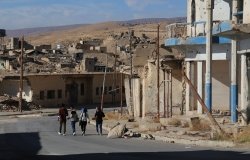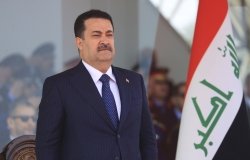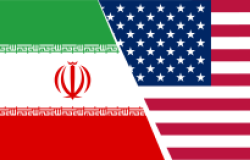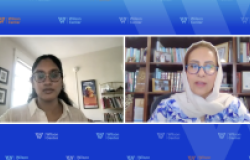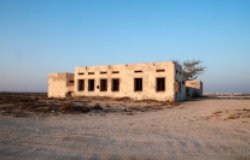The Annual Michael Van Dusen Lecture on the Middle East: "Congress and Foreign Policy: The Good, the Bad, and the Ugly"
This annual lecture serves to honor Dr. Michael Van Dusen’s commitment to the Middle East and constant support of the Middle East Program since its inception in February 1998. The series will provide a forum for the world’s leading thinkers and policymakers to speak on critical issues affecting the Middle East and North Africa region.
Overview
The Middle East Program launched the Michael Van Dusen Lecture on the Middle East, its annual lecture series to honor Dr. Michael Van Dusen’s commitment to the Middle East and his support of the Middle East Program. The series provides a forum for the world’s leading thinkers and policymakers to speak on critical issues affecting the Middle East and North Africa region.
On January 15, 2014 the Middle East Program at the Woodrow Wilson Center hosted an event with 270 attendees, “Congress and Foreign Policy: The Good, the Bad, and the Ugly” with David Ignatius, associate editor and columnist at the Washington Post. Jane Harman, Director, President, and CEO of the Woodrow Wilson Center, provided introductory remarks and Haleh Esfandiari, Director of the Middle East Program, provided welcoming remarks.
Harman honored Van Dusen and his work in the Congress Foreign Affairs committee as well as his years at the Wilson Center. She described how Van Dusen’s hard work led to the expansion of different programs at the Center and further emphasized his efforts which made the Center far more influential in its public role. In her welcoming remarks, Esfandiari thanked Van Dusen for his support and help in shaping the Middle East Program. She also reflected upon his efforts to expand the number of women staff members at the Center and to expedite her release when she was in prison in Iran in 2007.
David Ignatius started his talk by honoring Van Dusen and then talked about the role of Congress in foreign policy. He mentioned that the intersection of Congress and foreign policy in the Middle East “is not always a pretty story.” He referred to the recent negotiations with Iran over its nuclear program and noted President Obama’s 50 percent estimate of success in these negotiations. He then described the negotiations as one of the most difficult and delicate situations and criticized Congress for jeopardizing it by trying to pass a new sanctions bill against Iran.
Ignatius discussed an article that Van Dusen and Congressman Lee Hamilton authored in Foreign Affairs in 1973, in which they detail the basic tension that exists between Congress and the executive branch. This article explains how vague the U.S. Constitution is in allocating the power between the president and the legislative branch regarding foreign policy. He stated that as a journalist he watches this struggle, with some periods of strong Congressional action and some periods of assertive presidents in foreign policy.
He indicated that diplomacy cannot work when it is under constant pressure of back and forth politics. Ignatius added that Congress has become an expert in looking at issues in hindsight. Congressional hearings and reviews are held after mistakes are made and when what has happened is over. He asserted that Congress has also become well-versed in placing blame on others, while by taking a more proactive role, Congress could help prevent the need for blame; he gave the war in Iraq as an example. He then talked about the role of media and interest groups in campaigns and asked whether their influence needs to be at the current level. Ignatius closed his remarks by saying that the bad and the ugly in Congress does not always win, and people like Michael Van Dusen are among those who give this system its basic fabric and help hold it together.
The Middle East Program
Speaker
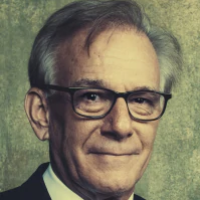
Hosted By

Middle East Program
The Wilson Center’s Middle East Program serves as a crucial resource for the policymaking community and beyond, providing analyses and research that helps inform US foreign policymaking, stimulates public debate, and expands knowledge about issues in the wider Middle East and North Africa (MENA) region. Read more
Thank you for your interest in this event. Please send any feedback or questions to our Events staff.

